Top RenderMonkey Alternatives for Shader Development
RenderMonkey, an integrated development environment (IDE) from AMD, has long been a go-to tool for writing shaders in HLSL, GLSL, and GLES. Its comprehensive toolsuite made it invaluable for developers pushing the boundaries of real-time graphics. However, with the evolution of web technologies and the emergence of new, more flexible tools, many developers are now seeking modern RenderMonkey alternatives that offer broader platform support, collaborative features, and enhanced workflows.
Discovering the Best RenderMonkey Alternatives
Whether you're a seasoned shader artist or just starting your journey, the good news is that the ecosystem for shader development has never been richer. Here's a curated list of excellent RenderMonkey alternatives that cater to various needs, from web-based editors to mobile-first solutions.

Shadertoy
Shadertoy is a fantastic free, web-based RenderMonkey alternative that pioneered pushing pixels from code to screen using WebGL since 2009. It's a vibrant community platform featuring live coding, content discovery, and a comment section, making it ideal for learning and sharing shader creations.
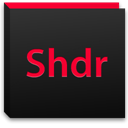
Shdr
Shdr is a free, open-source web-based ESSL (GLSL) shader editor, viewer, and validator powered by WebGL. As a lightweight and accessible RenderMonkey alternative, it's perfect for quick experiments and validation of your GLSL code directly in your browser or as a Chrome extension.

ShaderLab
ShaderLab is a free, web-based WebGL2 GLSL editor that offers a live view of your progress with automatic JIT compilation on code changes. It stands out as a RenderMonkey alternative with features like external audio inputs, a resolution selector, and social network capabilities for sharing your work.
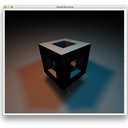
ShaderWorkshop
ShaderWorkshop is a free, open-source, and self-hosted interactive GLSL fragment shader editor inspired by ShaderToy. Built with Qt, it provides a robust desktop environment for shader development, making it a powerful RenderMonkey alternative for those preferring an offline workflow.
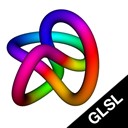
Shaderific
Shaderific is a commercial mobile shader development tool for iOS (iPhone, iPad). It's an excellent RenderMonkey alternative for developers looking to get started with OpenGL ES 2.0 and 3.0 shader development on the go, offering an IDE specifically for mobile platforms.

The Force
The Force is a free, open-source, web-based, and self-hosted IDE/code editor for WebGL. As a powerful RenderMonkey alternative, it comes complete with advanced features like audio input control, OSC support, and a texture panel, making it suitable for live performances and complex interactive experiences.
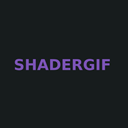
Shadergif
ShaderGif is a free, open-source web platform for art made with code. It allows users to create GIFs using GLSL, JavaScript, and p5.js, offering a creative and shareable RenderMonkey alternative for visual artists and coders alike.
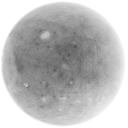
The Book of Shaders
The Book of Shaders is a free, web-based educational resource that provides a gentle, step-by-step guide through the abstract world of Fragment Shaders. While not an IDE itself, its educational content on GLSL makes it an invaluable RenderMonkey alternative for learning the fundamentals of shader programming.
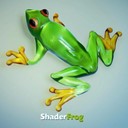
ShaderFrog
ShaderFrog is a free, web-based WebGL shader editor that allows you to design shaders without writing code, making it an accessible IDE for visual programming. This makes it a unique RenderMonkey alternative for those who prefer a node-based or visual approach to shader creation.

FX Composer
FX Composer is a free integrated development environment (IDE) for authoring shaders on Windows. It supports shading languages like HLSL, Cg, and CgFX, making it a direct and capable RenderMonkey alternative for those still working in a Windows environment with similar language requirements.
The landscape of shader development tools has evolved significantly since RenderMonkey's prime. From highly interactive web platforms to dedicated mobile IDEs, there's a powerful and feature-rich RenderMonkey alternative available for nearly every use case and preference. Explore these options to find the best fit for your next shader project.